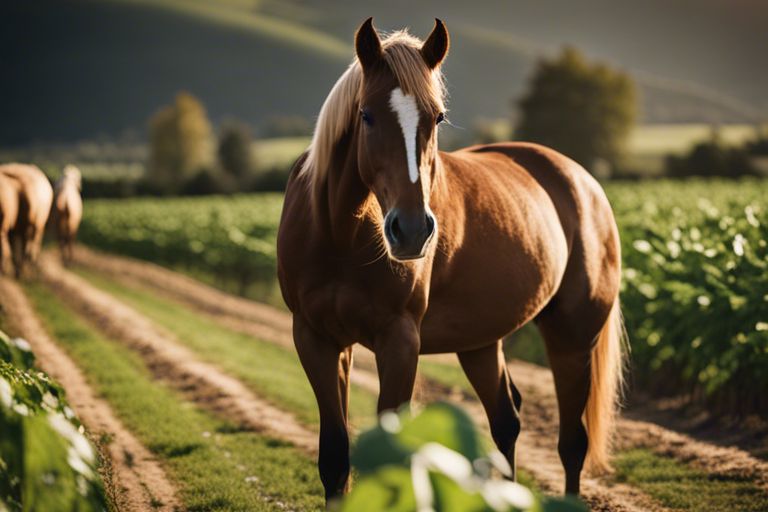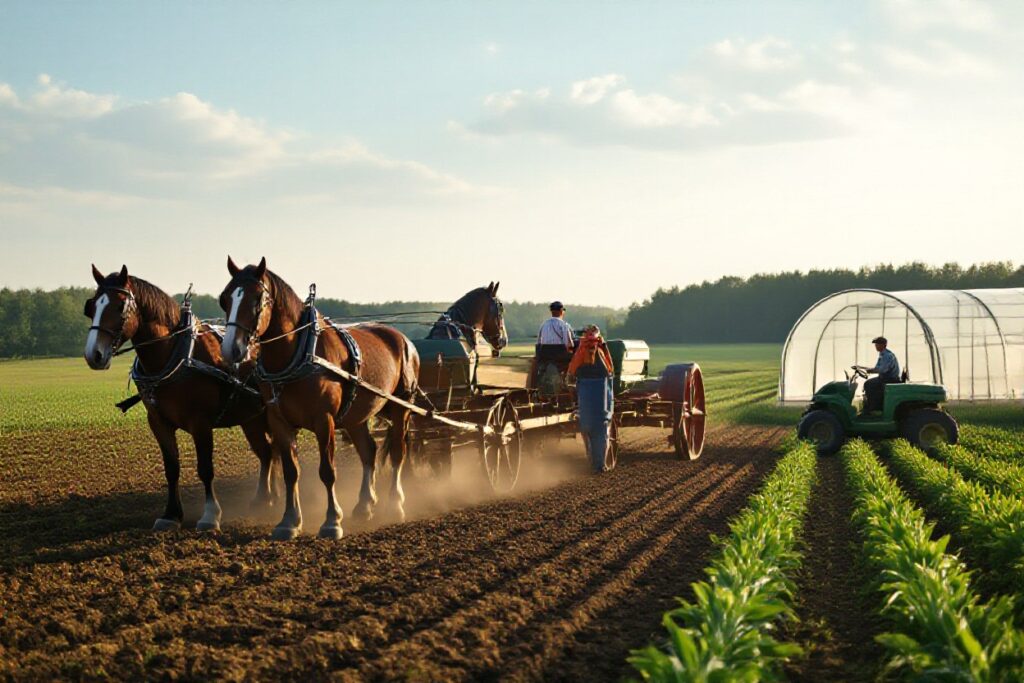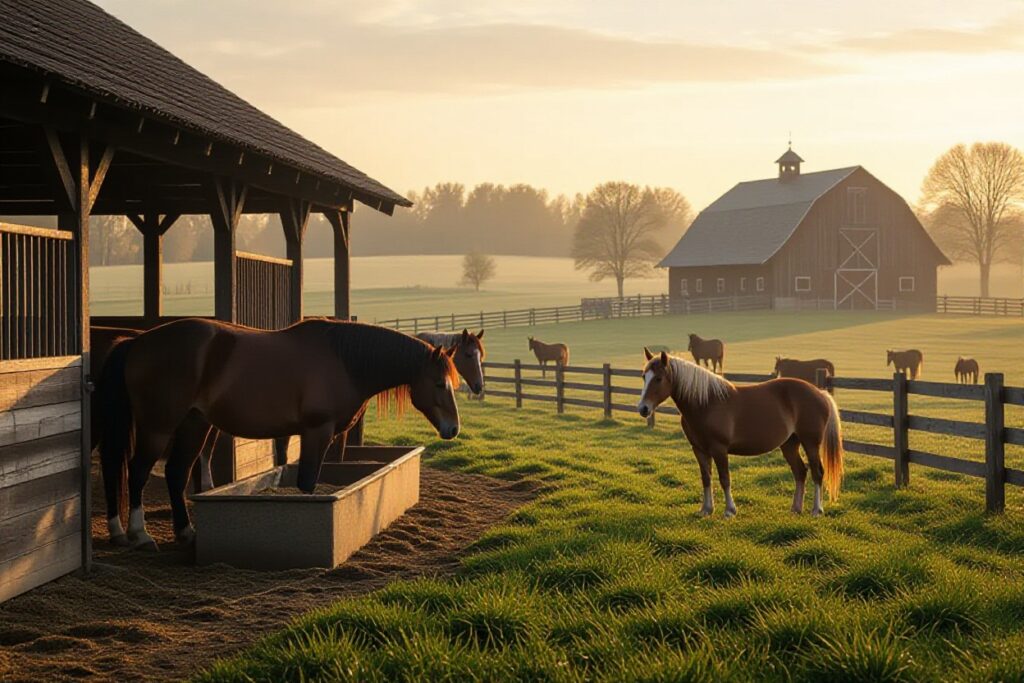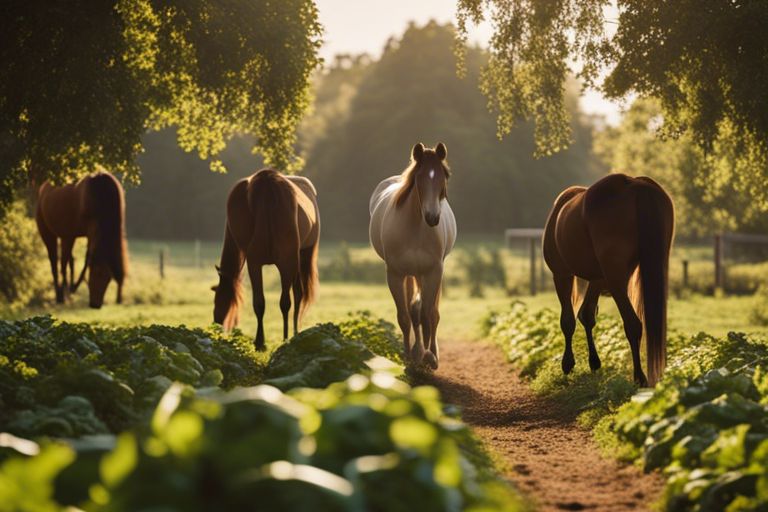Most individuals underestimate the crucial role that horses still play in modern agriculture. From plowing fields to pulling wagons, these majestic animals offer efficiency, sustainability, and a deep connection to the land that machinery cannot replicate. In this post, we will investigate into the key benefits of using horses in farming practices today, highlighting their impact on the environment and the tradition they uphold in agricultural history.
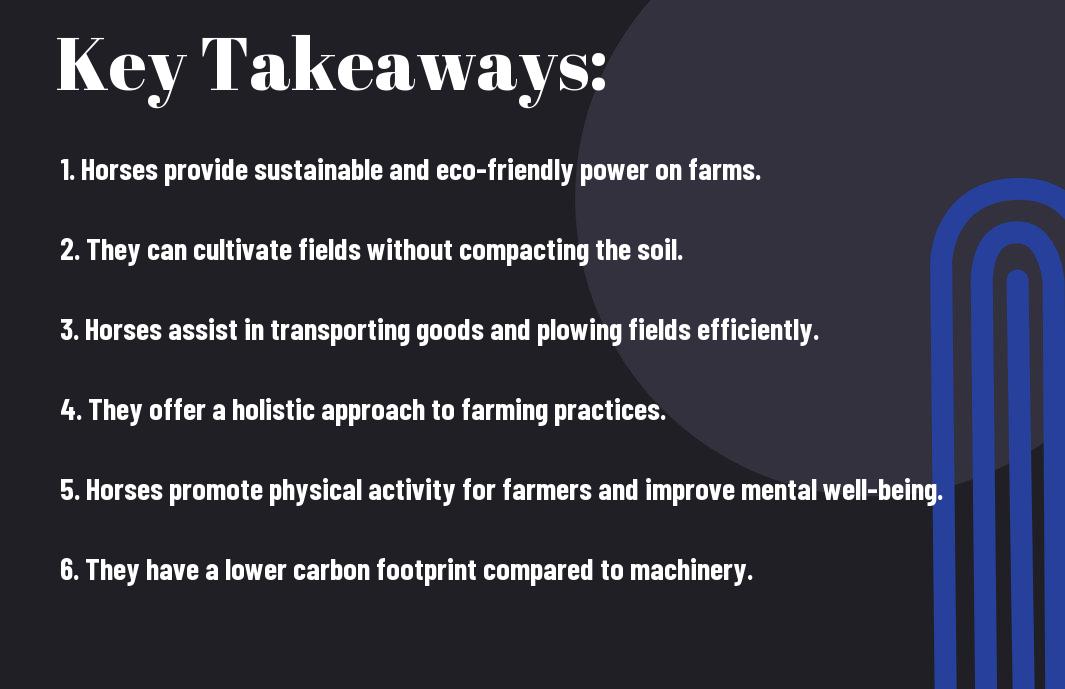
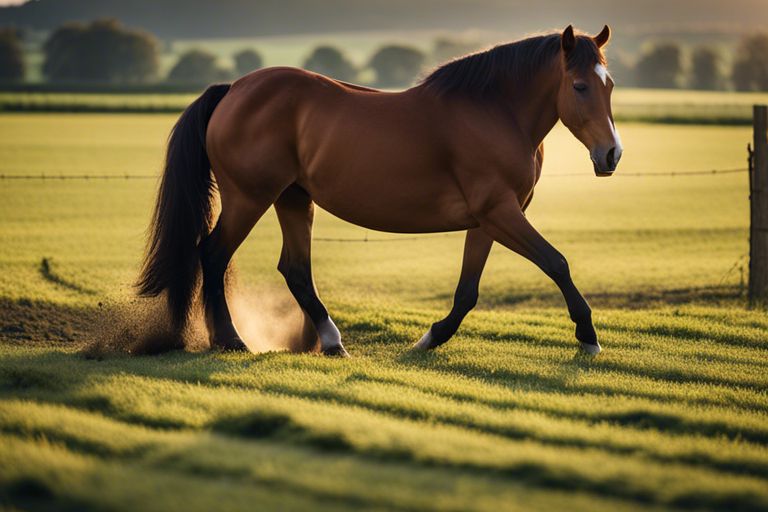
Historical Context
The Evolution of Agriculture
One of the most significant advancements in human history was the evolution of agriculture. Over centuries, humans transitioned from being hunter-gatherers to settling down and cultivating crops. This shift not only transformed the way people lived but also led to the development of civilizations.
Horses in Traditional Farming
For centuries, horses have been crucial partners in traditional farming practices. These majestic animals were used for plowing fields, transporting goods, and providing necessary labor on farms. The bond between farmers and their horses was deeply rooted in mutual respect and dependency.
Evolution has seen a gradual decline in the use of horses in farming practices as machinery became more prevalent. However, many small-scale farmers and enthusiasts still prefer working with horses due to their reliability, agility, and eco-friendly nature.
Modern Agriculture and Horses
Any discussion about modern agriculture is incomplete without acknowledging the integral role that horses play in this evolving landscape. While tractors and machinery have largely replaced animal labor on farms, there has been a noticeable shift back towards incorporating horses into agricultural practices.
The Resurgence of Horse-Powered Farming
HorsePowered farming, once a common sight in rural areas, is making a comeback for several reasons. Firstly, there is a growing awareness of the environmental impact of heavy machinery, leading farmers to seek more sustainable alternatives. Additionally, horses offer a more intimate and hands-on approach to farming, fostering a deeper connection between the farmers, the land, and the animals.
Benefits of Using Horses in Modern Agriculture
Horses have their unique strengths that make them a valuable asset in modern agricultural practices. Their agility and ability to work on various terrains make them particularly useful for small-scale farming operations. Furthermore, they can access areas that machinery may not reach, allowing for more thorough and efficient cultivation of the land.
Modern agricultural practices can benefit greatly from incorporating horses into the workflow. Not only do horses provide a more sustainable and environmentally friendly alternative to machinery, but they also contribute to fostering a deeper connection to the land and a more holistic approach to farming.
Environmental Impact
Now let’s explore into the
Reducing Carbon Footprint
of using horses in modern agriculture. Footprint, horses are considered environmentally friendly alternatives to machinery due to their lower carbon footprint. By using horses for plowing fields or transporting goods instead of gas-guzzling tractors or trucks, you can significantly reduce the amount of greenhouse gases emitted into the atmosphere. This sustainable practice helps mitigate climate change and promotes a healthier environment for future generations.
An
Soil Conservation and Health
is another critical aspect of using horses in agriculture. Horses are gentle on the land, minimizing soil compaction compared to heavy machinery. This reduced compaction allows for better water infiltration and root growth, ultimately improving soil health and productivity. Additionally, their manure serves as a natural fertilizer, enriching the soil with vital nutrients to support plant growth and biodiversity.
Environmental stewardship is crucial in modern agriculture, and horses play a vital role in promoting sustainable practices. By utilizing horses, you not only reduce your carbon footprint and improve soil health but also contribute to
Biodiversity and Ecosystem Services
.
Reducing the use of machinery in agriculture decreases habitat destruction and fragmentation, preserving the natural ecosystem and promoting biodiversity. This, in turn, enhances pollination, pest control, and nutrient cycling, vital for a thriving agricultural system.
This holistic approach to farming benefits not only your immediate surroundings but also the larger ecosystem, creating a more resilient and sustainable agricultural landscape.
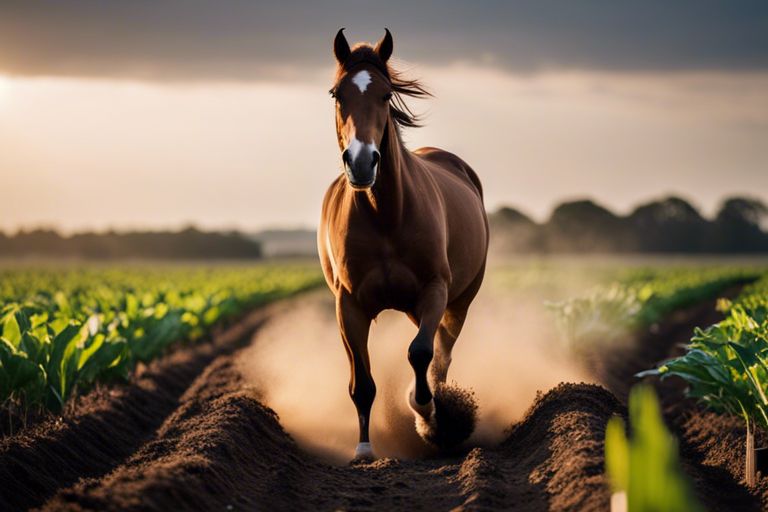
Economic Advantages
Cost-Effective Farming Practices
Not only do horses provide a sustainable alternative to tractors and machinery, but they also offer cost-effective solutions for modern agricultural practices. With rising fuel and maintenance costs associated with heavy machinery, integrating horses into your farm can significantly reduce operational expenses. Horses are not only cheaper to maintain but also versatile, allowing them to perform a wide range of tasks with proper training and care.
Job Creation and Local Economies
For small-scale farmers and local communities, horses can play a crucial role in job creation and boosting local economies. By utilizing horses for various farming activities such as plowing, cultivating, and harvesting, you can create opportunities for stable employment in rural areas. Additionally, supporting local businesses that specialize in horse breeding, training, and equipment can stimulate economic growth within your community.
It’s important to recognize that investing in equine-powered agriculture not only sustains traditional farming practices but also fosters a sense of community and pride in preserving cultural heritage. By choosing to incorporate horses into your farming operations, you are not only benefiting economically but also contributing to the sustainability of rural livelihoods.
Diversified Farm Income Streams
For farmers looking to diversify their income streams, horses can offer a valuable opportunity to generate additional revenue. Beyond their role in agricultural work, horses can be leveraged for recreational activities such as riding lessons, carriage rides, and equine therapy programs. These alternative revenue streams can help offset seasonal fluctuations in crop production and provide a stable source of income throughout the year.
Cost-effective and versatile, horses enable you to explore new revenue opportunities while enhancing the overall sustainability of your farm. By tapping into the growing demand for equine-related services, you can capitalize on the unique advantages that horses bring to modern agricultural practices.
Social and Cultural Significance
Preserving Rural Heritage
To preserve rural heritage, horses have played a vital role in maintaining farming practices that have been passed down through generations. **They** remind **you** of a time when agriculture relied heavily on horsepower rather than machinery. In a rapidly modernizing world, **they** serve as a living link to **your** ancestors and the traditional ways of farming that shaped **your** community.
Community Building and Education
On a broader scale, horses contribute to community building and education by bringing people together for various equine-related events and activities. **They** provide opportunities for **you** to learn about horsemanship, team building, and responsibility. Additionally, **they** offer a unique way for **you** to connect with others who share **your** passion for these magnificent animals.
Rural communities often organize horse-centered events such as rodeos, fairs, and parades, which not only entertain but also educate attendees about the history and significance of horses in agriculture. **You** can witness firsthand the bond between humans and horses, gaining a deeper appreciation for the role these animals play in **your** community.
Therapeutic and Recreational Opportunities
The therapeutic and recreational opportunities provided by horses are truly invaluable. **They** offer **you** a chance to escape the stresses of modern life and immerse yourself in the calming presence of these gentle giants. Whether **you** engage in horseback riding, equine therapy, or simply spend time grooming and bonding with a horse, **you** are sure to experience a sense of peace and well-being in **their** company.
The bond between humans and horses is a powerful one, capable of bringing comfort and joy to individuals of all ages and backgrounds. **It** is fascinating to see how interacting with horses can have such a positive impact on **your** mental and emotional well-being. Whether **you** are seeking relaxation, emotional healing, or simply a fun recreational activity, horses have something meaningful to offer **you**.
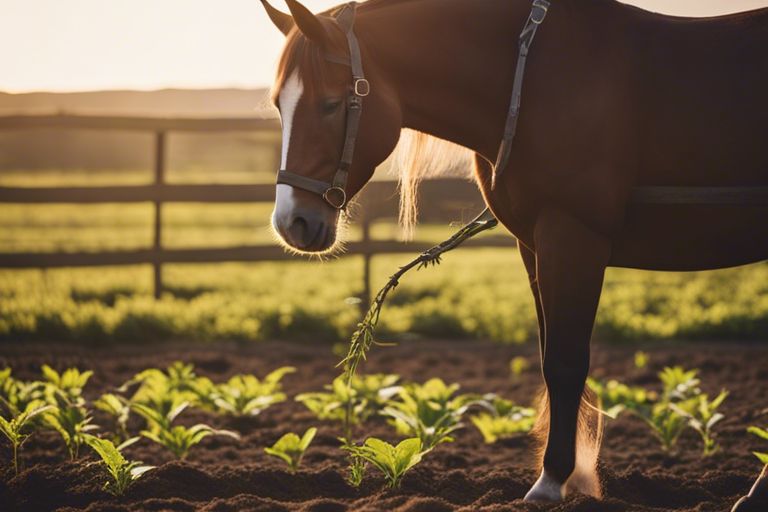
Challenges and Limitations
Infrastructure and Equipment Needs
To effectively incorporate horses into modern agriculture, you will need to consider the necessary infrastructure and equipment. This includes suitable stables for the horses, safe and well-maintained harnesses, and appropriate implements for farming tasks like plowing and harrowing.
Training and Expertise Requirements
To ensure the successful integration of horses into your farming practices, you must invest time and effort in training both yourself and the animals. Training the horses to respond to commands and work harmoniously with you in the fields is crucial for a productive partnership.
Additionally, you will need to acquire the necessary expertise in horse care and training techniques. Understanding the behavior and needs of horses is necessary for their well-being and optimal performance in agricultural tasks.
Integration with Conventional Farming Practices
Practices such as crop rotation and field management may need to be adjusted to accommodate the use of horses in your agricultural operations. This integration process may require careful planning and experimentation to find the most efficient and sustainable ways to incorporate horses into your farming practices.
To wrap up
Hence, it is evident that horses continue to play a crucial role in modern agriculture despite the advancements in technology. The relationship between humans and horses goes beyond mere functionality; it is deeply rooted in tradition, trust, and respect. As you reflect on the importance of these majestic creatures in sustaining agricultural practices, you may develop a newfound appreciation for the intricate balance between nature and industry.
Q: What role do horses play in modern agriculture?
A: Horses play a crucial role in modern agriculture by aiding in various farming tasks such as plowing fields, pulling heavy equipment, and providing transportation.
Q: Are horses still used for labor in agriculture today?
A: While the use of horses in agriculture has significantly decreased with the advent of machinery, they are still utilized on some farms for specific tasks where machinery may not be suitable.
Q: What are the benefits of using horses in agriculture?
A: Using horses in agriculture can be beneficial as they are more environmentally friendly than machinery, they do not require fossil fuels to operate, and they can access rough terrain that machinery may not be able to reach.
Q: How are horses trained for agricultural work?
A: Horses trained for agricultural work undergo specialized training to learn commands, proper harnessing, and specific tasks such as pulling equipment or plowing fields. They also require proper physical conditioning for the tasks at hand.
Q: What are some challenges faced in using horses for modern agricultural tasks?
A: Some challenges faced in using horses for modern agricultural tasks include the high cost of maintaining horses, the need for skilled handlers, and the limited speed and efficiency compared to machinery.
